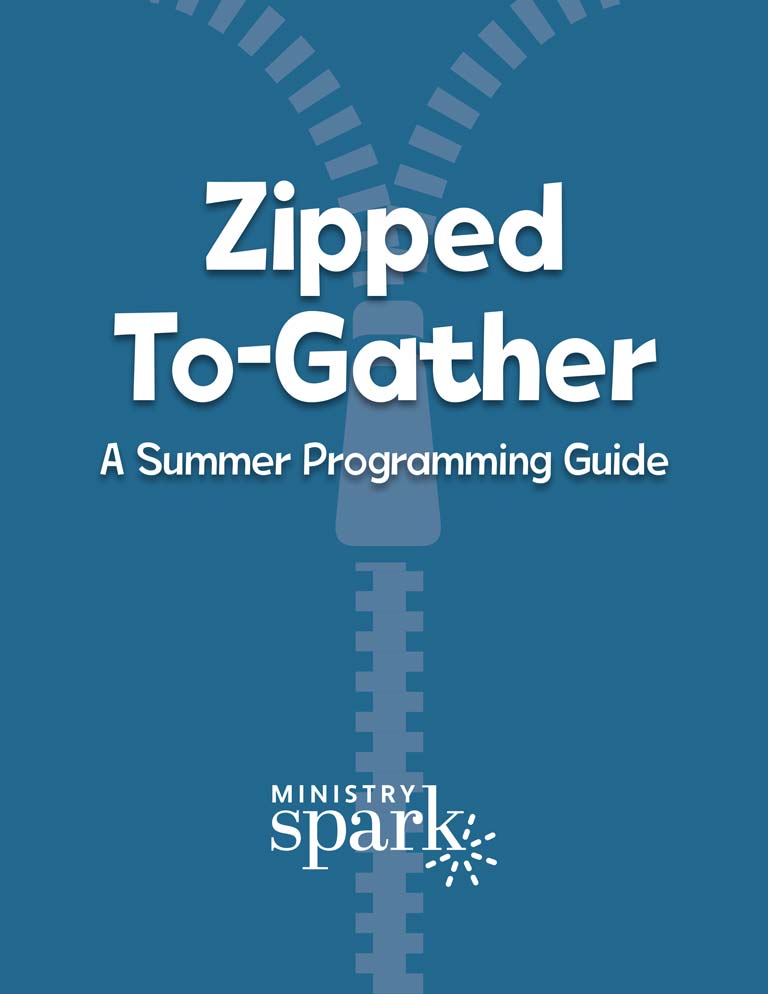Whether the event idea came from that pastors’ retreat you went on a year ago or was thrown at you out of nowhere from church leadership with a month left to plan and execute it…
Can we all agree that putting on a meaningful kids’ ministry event is difficult?
You want the kids to have fun.
You need to get volunteers there.
Every parent has a different expectation for what’s going to happen.
You’d love for it to encourage engagement with the whole church.
Your budget is tighter than your high school jeans.
And in all the frenzy of getting prepared, you haven’t thought about how to tell the congregation about it during your announcement time this week. That’s the moment, for me, when it comes crashing down.
The deadliest words you could say when promoting an event.
“You do NOT want to miss this.”

When I was doing communication training with one of the other pastors on staff, I remember his feedback to me after I gave that as my earth-shattering reason that someone should even consider what I had just said.
“Imagine I’m someone listening to you talk about that,” he offered. “And you say, ‘You don’t want to miss this.’ And I think, ‘Yeah I do want to miss it. I’m busy.’ Then what?”
Why “You Do Not Want to Miss This” Doesn’t Work
I had just assumed I could speak desire into anyone at my church. By just saying they wouldn’t want to miss the event, I assumed I had done enough to instill a desire in them to be there.
I started thinking about my personal life. If someone in my friend group told me, “Hey, Andrew, you should cut all your hair off,” I would write them off no matter how passionate they were. Trust me. It wouldn’t be good for anyone who had to stare at my ugly, bald head.
I think the people we lead at our churches often feel like we’re telling them they should chop off their hair because we think it’s a good idea.
Simon Sinek put it this way: “There are only two ways to influence human behavior: you can manipulate it or you can inspire it.”
I don’t know a single pastor whose endgame isn’t to inspire others to follow and serve Christ more wholeheartedly. But if we want to live that out, we must learn to communicate our whys better.

I think of Jesus stopping the people following him, imploring them to think about what it’s going to take. “Whoever does not bear his own cross and come after me cannot be my disciple.” (Luke 14:27) He was telling them that if they understood why they were following Him, they would be willing to lay down everything else in their lives (including their life!). But if they didn’t, they wouldn’t even truly be following Him. In order to have purposeful events in our ministries, we must engage in the same way.
There are three stoppers I’ve noticed that can keep us from communicating the deeper, more important reasons behind any ministry event that we’re doing:
1. There is no good reason you’re doing the event.
Maybe it was forced on you by your supervisor, it’s a tradition at your church, or you just feel pressure to “keep up” with other churches in your area. You can probably imagine that doing an event for no good reason is a fast track to disaster.
If this is you, I’d strongly encourage you take the event to God and ask what He sees in it. He may help you uncover a great reason for doing this event—whether to strengthen your church, the community you’re in, or both! He may also make it clear that this wasn’t from Him in the first place, and you need to lay it down. It would be far better for your church and ministry to step away from a poor experience than to just do it “because.”
Take the event to God and ask what He sees in it.
With a healthy dose of humility, bring this conversation to your leadership team, elders, or co-workers. It may start a great conversation that can remind everyone of the power of intentionality.
2. You don’t have vocabulary for why you’re doing the event.
Many times we can default to the deadly “You do not want to miss this!” remark because we haven’t taken time to slow down and consider the purpose of the event.
And can we admit that it’s hard to find the time? As a ministry leader, there’s a good chance that your responsibilities are never-ending and difficult to prioritize. But if this event is worth doing, it’s worth doing purposefully.
If this event is worth doing, it’s worth doing purposefully.
Take some time on your own (or with your leadership) to really get a handle on WHO you’re doing this event for and WHY it’s important. You’ll find that determining the “how” in event planning, volunteer training, and more will all come far more naturally than it did before.
And when it comes time for you to communicate your reason, you’ll be ready to offer the full strength of why you’re doing this event.
3. We’re afraid that people won’t understand or get excited by our reasoning.
Let’s assume you’ve identified some core reasons behind putting on your next fall festival or outreach event. That’s when the “voices” start to come:
- “Am I getting too excited about this?”
- “What are people going to think of an event that really reaches out to a different part of our city?”
- “This would cost more money than I think the board’s going to be comfortable with.”
If you have taken a step in being purposeful with your ministry, don’t be surprised at all when the enemy lets every possible second thought flood you.
As ministry leaders, our role is not to talk ourselves or others out of God’s best. Our role is not to keep people comfortable. Our role oftentimes is to create discomfort that propels people into the ways of God.
If this shakes up your ministry, God could use that.
If this makes some members uncomfortable, God could use that.

If your event is structured and focused on loving people, God is absolutely going to use it.
Every event that you put on for your church or ministry has unlimited potential to engage the hearts and minds of people at your church in fresh ways.
Don’t let fear or uncertainty stop what the Spirit wants to accomplish in and through you.
Conclusion
So when you’re pitching your next ministry event, don’t say those deadly words. When you’re telling people about it, clearly communicate what you’re going to do:
“We’re doing this VBS because every year we see fresh faces of kids and parents checking out our church for the first time. And we need people like you to help them feel welcome and start calling our church ‘home.’”
“Serving at our food pantry provides relief for the hungry in our city as well as encouragement to the staff of that ministry to know what they’re doing matters. Jesus said that when we feed the least of these, we’re feeding him. Come feed Jesus with us.”
“This Fall Festival will be a chance for us to be a light to our city and let every family that comes through know that they matter and are loved. And by helping run a booth or donating candy, you’re extending the kindness of Christ to people who are desperate to be loved.”
The families and members of your church need guidance like this. You’ll find that many people very naturally won’t want to miss your event when you communicate like this.

Zipped To-Gather: A Summer Programming Guide

Zipped To-Gather: A Summer Programming Guide












